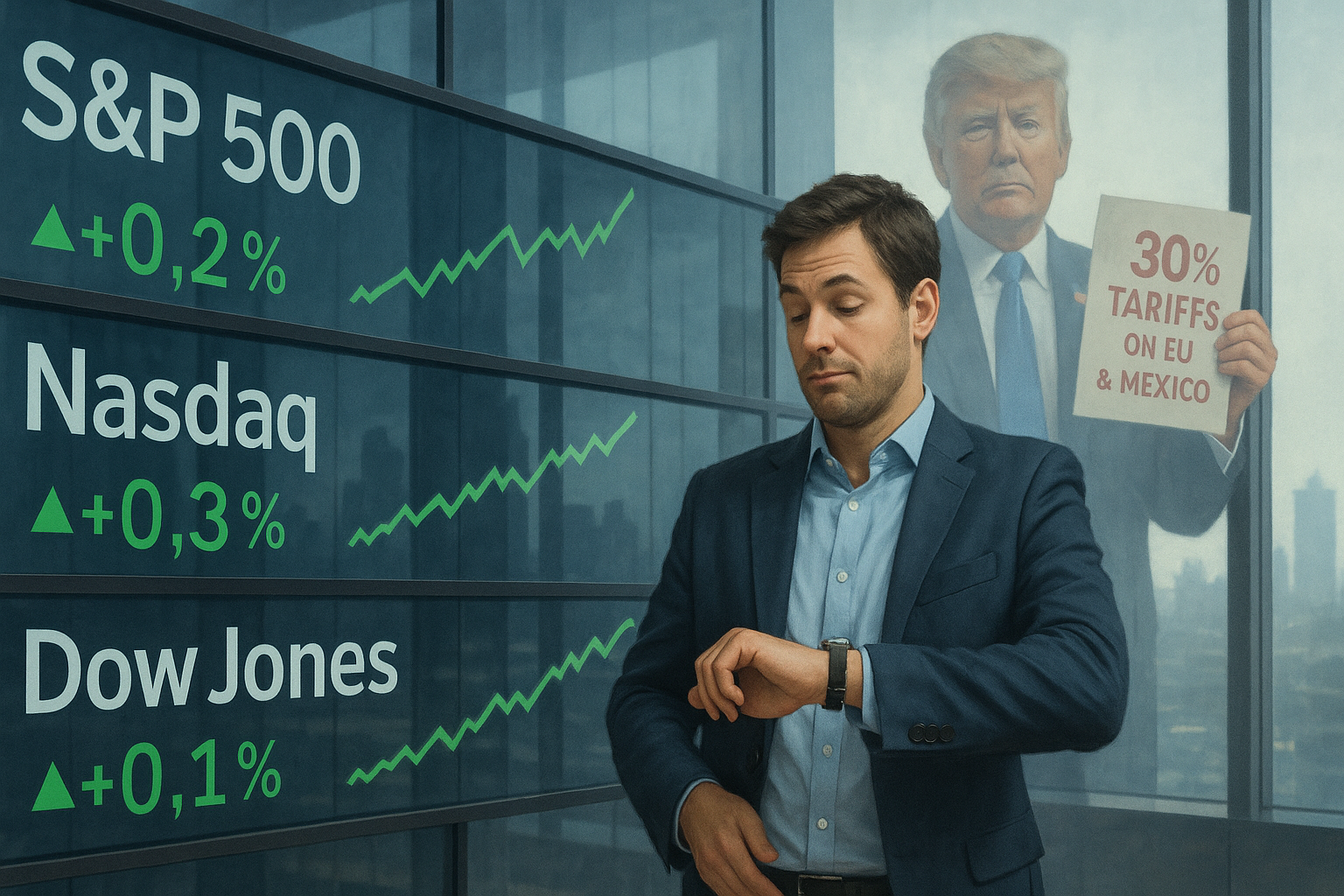The S&P 500 inched up Monday despite former President Trump's weekend saber-rattling about slapping hefty new tariffs on European and Mexican imports. It was, frankly, the financial equivalent of checking your watch while someone threatens apocalypse.
Trump announced plans for 30% tariffs on EU and Mexican goods (starting August 1st, if you're marking your economic disaster calendar), yet markets responded with remarkable indifference. The S&P rose 0.14%, the Nasdaq climbed 0.27%, and the Dow added 88 points—hardly the panic one might expect.
So what gives?
I've been covering market reactions to political posturing since the first Trump administration, and what we're seeing is something I'd call "tariff threat fatigue." Wall Street has essentially developed an immunity to these announcements after years of exposure.
The street has its own calculation now: Initial Tariff Threat × Probability It Actually Happens = Real Market Concern. And that probability factor? It's somewhere between "we've heard this before" and "let's wait and see."
Look, we all remember the first Trump term's trade war theatrics. Remember when markets would swing wildly at every tweet? Not anymore. Institutional investors have developed antibodies—they've seen this movie and aren't rushing for the exits during the opening credits.
EU and Mexican officials have already signaled they're keeping diplomatic channels open. The market reads this as: adults remain in the room. There's a widespread assumption (perhaps dangerously so) that these announcements represent opening positions rather than final policy.
This isn't to say tariffs don't matter. They absolutely do! But there's a sophisticated discounting mechanism at work—markets pricing in not what was announced, but what they believe will ultimately emerge after negotiations conclude.
Meanwhile, Q2 earnings season is ramping up, providing a convenient distraction from geopolitical noise. Fundamentals still drive investment decisions, even when trade tension tries stealing the spotlight.
I spoke with several fund managers yesterday who pointed to companies like Texas Instruments and Broadcom as potential beneficiaries—firms that already weathered previous trade tensions and might attract investors seeking shelter in globally positioned large caps.
(An interesting side note: market volatility in response to tariff announcements has decreased with each successive threat over the years—a pattern behavioral economists find fascinating but completely predictable.)
The real question isn't tomorrow's market reaction, but what happens if these tariffs actually take effect August 1st. The collective bet seems to be they won't—at least not at 30%. But if that assumption proves wrong... well, that's when we might see genuine market disruption.
For now, though, Wall Street seems content following that old trading floor wisdom: "Trade the market you have, not the one you fear might exist next month."
Which is either brilliant or utterly delusional. I guess we'll know by August.
